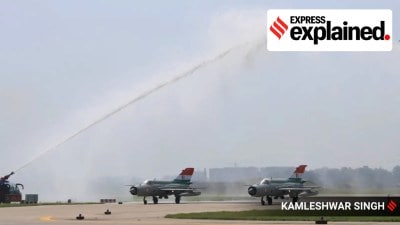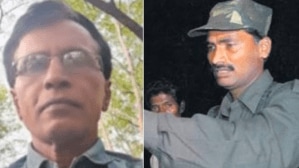Sri Lanka’s former PM Wickremesinghe seeks votes in Tiger-dominated north
Presidential hopeful Ranil Wickremesinghe flew to a military base in Sri Lanka’s rebel-dominated north on Thursday to woo soldiers’...

Presidential hopeful Ranil Wickremesinghe flew to a military base in Sri Lanka’s rebel-dominated north on Thursday to woo soldiers’ votes with his pledge of lasting peace with the Tamil Tigers.
Main Opposition leader Wickremesinghe—who brokered a 2002 truce with the rebels when he was prime minister, and is seen best placed to clinch a final end to two decades of civil war—did not stray beyond the base to areas where the army says violence is worsening.
‘‘As peace comes, hopefully the number of troops can be reduced,’’ he told reporters as helicopters took off and transport planes landed at Palali military base near the government-controlled town of Jaffna. ‘‘But that is a matter for the armed forces commanders.’’
Wickremesinghe is running against Prime Minister Mahinda Rajapakse for the presidency on November 17.
Wickremesinghe says without a permanent peace settlement Sri Lanka cannot move forward economically, a stance that has found resonance with voters.
A survey of 1,200 voters across government-controlled areas published this week by the Centre for Policy Alternatives ranked Wickremesinghe as the best candidate to handle both the peace process and the soaring cost of living.
Wickremesinghe and Rajapakse are split over how to handlethe peace process. Rajapakse, seen as more hardline, has angered the rebels by saying the ceasefire agreement should be amended.
The Tigers say they are not keen on either candidate.
They say they will still allow those living in the roughly 15 per cent of Sri Lanka under Tiger control to cast their ballots on polling day, but a senior army officer said he believed the recent increase in attacks was to create a climate of fear that would intimidate voters into staying away.
‘‘I think it is because of the imminent presidential election,’’ said Brigadier Janake Ratnayake. ‘‘This violence is to intimidate people. They are telling people not to vote. I think after the election it will subside.’’ —Reuters





- 01
- 02
- 03
- 04
- 05


























